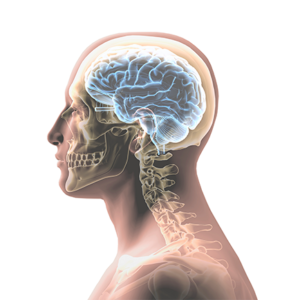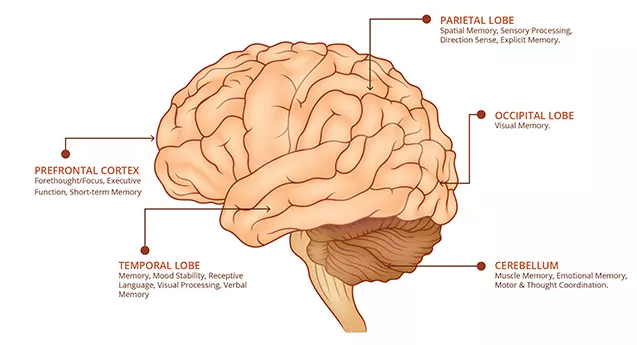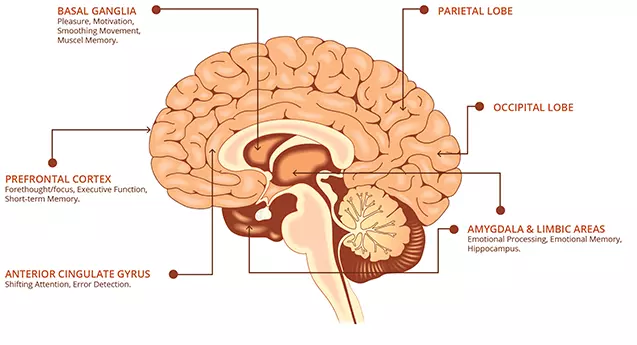About Your Brain
Brain Facts
Your brain is involved in everything you do, including how you think, how you feel, how you act and how you get along with other people. Your brain determines your personality, character, intelligence and every single decision that you make.
When your brain works right, you work right. But when your brain is troubled, you are much more likely to have trouble in your life. With a healthy brain, you are happier, physically healthier (because you make better decisions), wealthier (also due to better decision-making), have better relationships, and are more successful in everything you do. When your brain is unhealthy, for whatever reason (brain injuries, drug abuse, obesity, sleep apnea, mold toxicity, etc.), you are sadder, sicker, poorer, and less successful. The good news is, you can change your brain and change your life.
Contact Us
Despite its Power, the Brain is Very Delicate
- It weighs about 3 pounds.
- It’s the texture of Jell-O or egg whites.
- Its composition is 80% water.
- The brain is estimated to be about 60% fat (making it the fattest organ).
- The skull is very hard to protect the brain, but the boney ridges inside the skull can cause damage when the head gets hit.
Did You Know?
- The brain is the most complex organ in the universe.
- It has 100 BILLION neurons (nerve or brain cells).
- TRILLIONS of connections to other cells.
- The human brain can process information as fast as 268 mph.
- There are 100,000 miles of blood vessels in the brain.
- Each person has about 70,000 thoughts a day, 50% in words and 50% in images.
- While awake, a human brain can generate enough energy to power a light bulb (between 10-23 watts).
- It’s a myth that we only use 10% of the brain. A loss of 90% of its function would likely result in being a vegetable or being dead.
- We need and use all our brain – although we aren’t using every single neuron at every moment.
- When the brain is healthy you have more brain reserve. This protects you from developing dementia BUT diseases such as diabetes, high blood pressure and obesity can hurt the brain and increase your chances of getting dementia.
Ready to learn more? Speak to a care coordinator today!
Contact UsOuter View Of Your Brain
- Prefrontal Cortex: Judgement, forethought, planning, and impulse control
- Temporal Lobes: Memory, mood stability, and temper issues.
- Parietal Lobes: Sensory processing and direction sense
- Occipital Lobes: Vision and visual processing
- Cerebellum: Motor and thought coordination, processing speed, and judgment
- Basal Ganglia: Integrates thoughts, feelings, and movements, involved with pleasure

Inner View Of Your Brain
- Prefrontal Cortex: Judgement, forethought, planning, and impulse control
- Anterior Cingulate Gyrus: Shifting attention
- Parietal Lobes: Sensory processing and direction sense
- Occipital Lobes: Vision and visual processing
- Amygdala & Limbic Areas: Sets emotional tone, involved with mood and bonding

“With A Better Brain Comes A Better Life”
– Daniel G. Amen, M.D.
